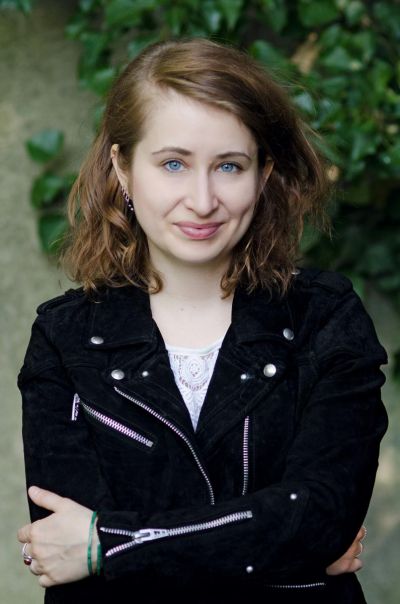Jurek Skrobala
Skrobala mainly writes about the thing that he has always liked to write about: music. His preferred formats are reportages and portraits. For example, he wrote about the US rap star Kendrick Lamar whom he met in Paris, about the Lithuanian conductor Mirga Gražinytė-Tyla, whom he was able to accompany in London and Birmingham, and the pianist Igor Levit, whom he was able to shadow in Germany, England and France. In 2018, his report on the scandal about the German rapper Kollegah put Jurek Skrobala on the shortlist for the German Reporter Prize.
As well as music and pop culture, from time to time Skrobala also likes to turn his hand to other social issues. For example, he wrote about a survivor of the massacre on the Norwegian island of Utøya, a North Korean refugee in Seoul and an observation about doing nothing.
Time and again, Jurek Skrobala addresses the subject of Poland. But not because he is of Polish heritage and wants to play his journalistic “Poland bonus”, as a German editor once put it somewhat disparagingly. He says: “I like to look at issues that revolve around Poland if I consider them to be relevant and if they interest me. Like with topics related to pop culture.”
In 2014, Skrobala took a trip through the country of his birth and interviewed various authors. They included Olga Tokarczuk in Wrocław, Szczepan Twardoch in Silesia and Andrzej Stasiuk near the Slovakian border. One issue that came up in the conversations was the one following Putin’advance in Donetsk mirrored in Poland's history. In 2019, Skrobala travelled to Warsaw for the “Zeit” to track down the myth of Polish vodka. Skrobala considered it a particular honour to be able to work on “Die letzten Zeugen” [The last witnesses], a cover story in the “Spiegel” about survivors of the Auschwitz concentration camp. To do this, he met with Zofia Posmysz and Kazimierz Albin in Warsaw for some longer interviews. The project also produced a book published by Susanne Beyer and Martin Doerry.
Today, Jurek Skrobala can still hold a conversation in fluent Polish. But sometimes he has to search for the right word and will occasionally fall back on the German expression, like when he is on the phone to his mother. Years ago during an internship at the “Deutsche Welle” in Bonn, a Polish editor said jokingly that he speaks Polish like Mickiewicz, a Polish poet from the 19th century. “That was rubbish of course”, says Skrobala, “but it was also funny because it’s true that the Polish that I learnt from my parents in the late 80s has gathered a bit of dust.”
Even today, Skrobala’s view of Poland is still influenced by the descriptions and the ideals of his parents who had taken to the streets for the Solidarność movement. He is critical of the national conservative politics of the PiS. In his view, they are at odds with the openness that many Poles have towards the world, they undermine democracy and set the country back. “It is a cause of concern for me”, he says. “The attempted censorship, the abortion law, the so-called LGBT-free zones, none of that fits in with the world view of young people in particular. In my opinion, none of that should have a place anywhere.”
On the question of whether Jurek Skrobala’s home is in Germany or in Poland, when he was 29, he wrote an article for “Neon” which he still stands by to this day. It said:
“When I was twelve, I wrote an article called “homeland”. It starts with a small Fiat, dogs barking and the smell of coal. They are the things that immediately remind me of Poland. When I was twelve, I thought that that must be home: these nostalgic details. But that’s not the case. Home is not a place. It is not in any passport; it is not made up of memories beautifully recalled. Home is a feeling. Feeling safe and secure – perhaps that’s home? That’s how I feel in Hamburg, where I live, in Wrocław, where my grandmas live, and in my parents’ apartment in shrunken Poland. Home – the word should be used in the plural more often.”
Anselm Neft, Februar 2021
The homepage of the journalist Jurek Skrobala: www.skrobala.de


